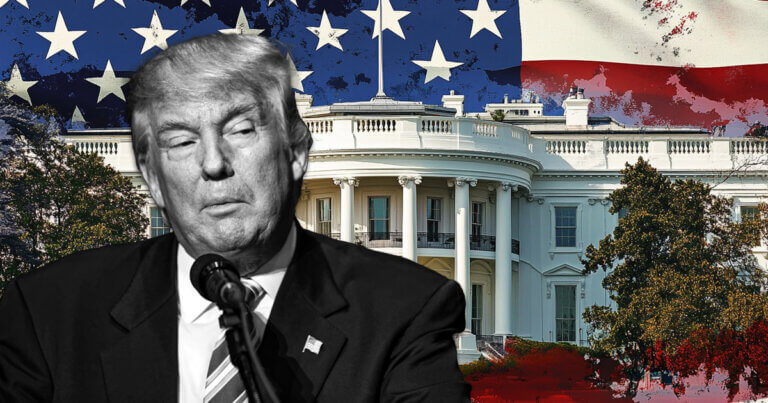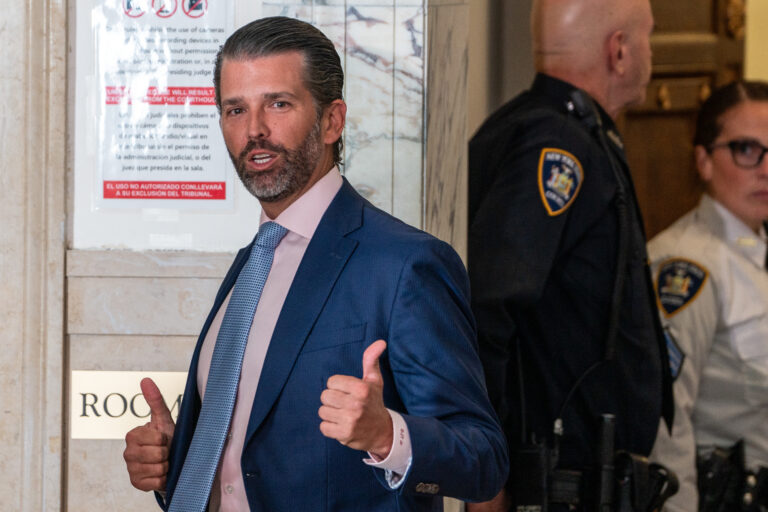In a surprising twist, Donald Trump’s latest crypto venture, World Liberty Financial, has become a target for scammers who have tricked tens of thousands of his followers into joining fake cryptocurrency giveaways on Telegram. This crypto project, which has been promoted by Trump as a challenge to big banks and a way to empower individuals financially, has gained significant attention. However, amidst all the hype, cybercriminals saw an opportunity and acted fast.
The scam took place on a rival Telegram channel called World Liberty Financial Airdrop, which falsely promised up to $15,000 in cryptocurrency for anyone willing to connect their crypto wallet. While it’s unclear how many victims have actually lost funds, the fake channel managed to lure over 70,000 users. It’s a devastating blow, considering the official Telegram channel for the project had drawn in more than 230,000 subscribers since its launch.
An Emotional Take on the Event: Imagine the excitement surrounding a new cryptocurrency project—especially one backed by none other than Donald Trump, a figure who’s been making waves by declaring himself the “crypto president.” His promises to create a national Bitcoin stockpile and even form a Crypto Presidential Advisory Council resonated with many traders. People believed they were on the verge of something groundbreaking. But then, like a dark cloud rolling over, scammers struck, preying on the eagerness and trust of Trump supporters and crypto enthusiasts alike.
This is the emotional rollercoaster that many crypto traders find themselves on: one moment they’re part of a revolution, the next, they’re targeted by cybercriminals who manipulate that hope for profit.
A New Crypto Project Hijacked: World Liberty Financial is the latest in a series of cryptocurrency initiatives aiming to disrupt the traditional financial system, and with Trump’s endorsement, it was bound to attract attention. This project, however, has also drawn in bad actors. A fraudulent Telegram channel posing as an official part of Trump’s venture began running ads offering fake giveaways and enticing people to share their wallet details for a supposed $15,000 in cryptocurrency. The problem? Once a user connects their crypto wallet, they become vulnerable to having their funds drained.
Despite warnings from the official Telegram channel about these scams, many have already been fooled. Even more disheartening, while the official channel issued a statement urging followers not to fall for the scam, ads for the fraudulent airdrop stayed on the platform, still visible to new subscribers for days.
It’s a harsh reminder of the wild west nature of crypto. It’s a space filled with innovation, but also one where opportunistic criminals are lurking in the shadows, ready to exploit any excitement for personal gain. Unfortunately, this isn’t an isolated incident—it’s a recurring issue in the crypto world. Scams, fake airdrops, and phishing schemes have long plagued the industry, and Trump’s project is simply the latest target.
The Emotional Impact on Crypto Traders: For the average crypto trader, this is a bitter pill to swallow. Those who were drawn into Trump’s project saw the potential for profit and perhaps even a chance to take part in a financial revolution. Some might have connected their wallets out of sheer excitement or even loyalty to the former president’s bold vision of economic empowerment. To find out that it was all a scam? That’s a punch to the gut, both emotionally and financially.
Crypto traders are no strangers to risk—many enter the market fully aware of the volatility. But these scams play on something deeper than market risk: they exploit trust, excitement, and the human desire for financial freedom. The emotional stakes are high when people invest not just their money, but also their hope in a new project. When that trust is broken, it creates an emotional backlash, causing fear and skepticism to rise. These scams don’t just steal money—they undermine faith in the entire crypto ecosystem.
Trump’s Role in the Crypto Space: Trump’s role in the crypto space has been evolving. Once skeptical of Bitcoin and other digital currencies, he has now embraced them in his presidential campaign, calling himself the “crypto president.” His new stance includes promises to establish a Crypto Presidential Advisory Council and to build a national Bitcoin stockpile—a move designed to appeal to crypto traders who see digital currencies as a way to challenge the existing financial order.
His entry into the crypto world, however, has been met with mixed reactions. Some traders are excited to have such a high-profile figure pushing crypto forward, while others remain skeptical, seeing it as yet another attempt to capitalize on a trending topic. And now, with this latest scam hitting so close to home, many are wondering if Trump’s crypto project is all it’s cracked up to be—or if it’s just another “grift,” as some critics have called it.
The Future of Trump’s Crypto Endeavor: Despite these challenges, Trump’s crypto project is still moving forward. The official World Liberty Financial channel has tried to assure its followers that no legitimate airdrops or token sales are taking place at this time, urging them to be vigilant. They’ve even changed their social media bios to warn users about scams circulating on Telegram and other platforms like X (formerly known as Twitter).
At the same time, Trump’s campaign continues to focus on positioning him as a leader in the crypto space. Whether this latest incident will hurt his standing with crypto traders or simply be seen as a bump in the road remains to be seen. For now, the project remains active, and Trump supporters are still rallying behind him, eager to see how his promises to revolutionize the financial system will play out.
The intersection of crypto and politics is becoming increasingly complex, and Trump’s entry into the space only adds more fuel to the fire. His supporters see him as a champion of financial independence, while his detractors view his crypto initiatives with suspicion. This latest scam, however, serves as a stark reminder of the risks that come with the territory.
For crypto traders, the lesson is clear: in a space where trust is fragile, it’s crucial to remain vigilant. Scams will continue to pop up as long as there’s money to be made, and it’s up to the individual trader to navigate these waters with caution. Whether Trump’s project can recover from this hit or whether it will be remembered as another failed attempt at crypto revolution remains an open question.



